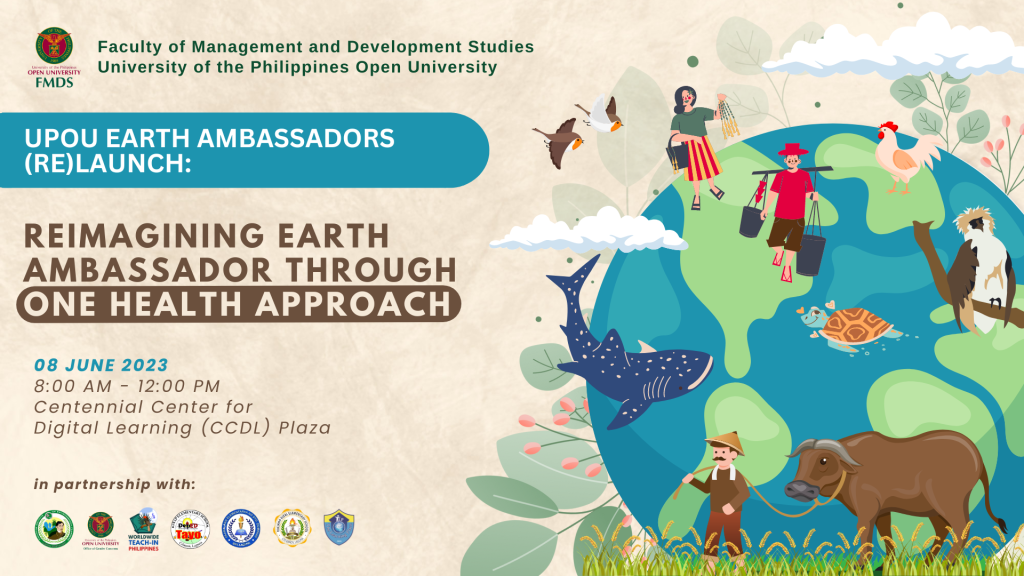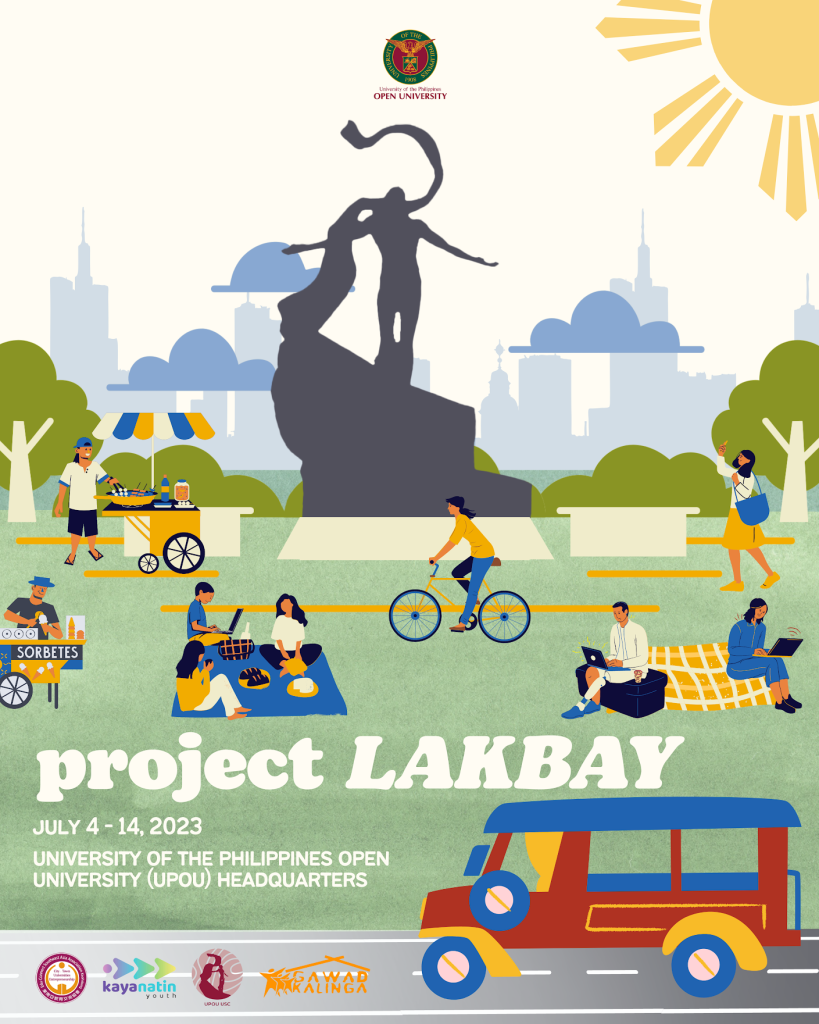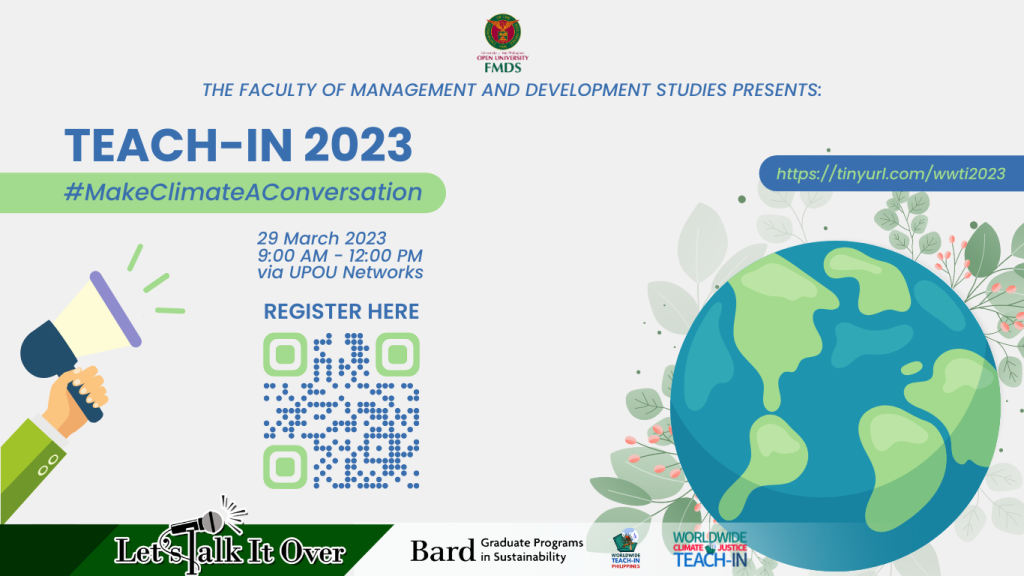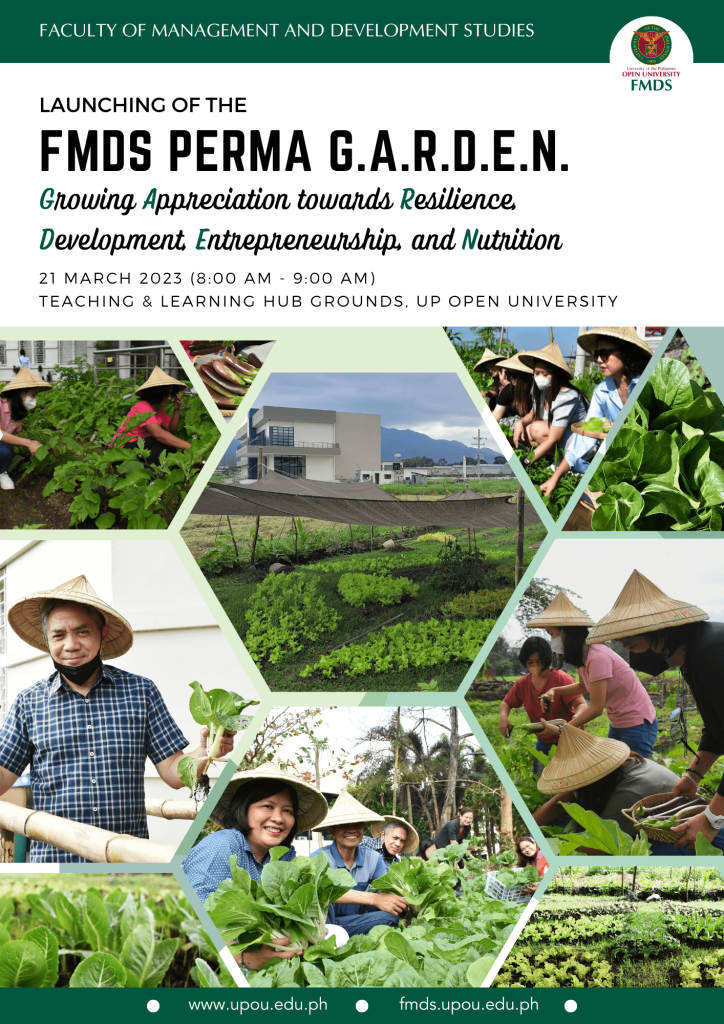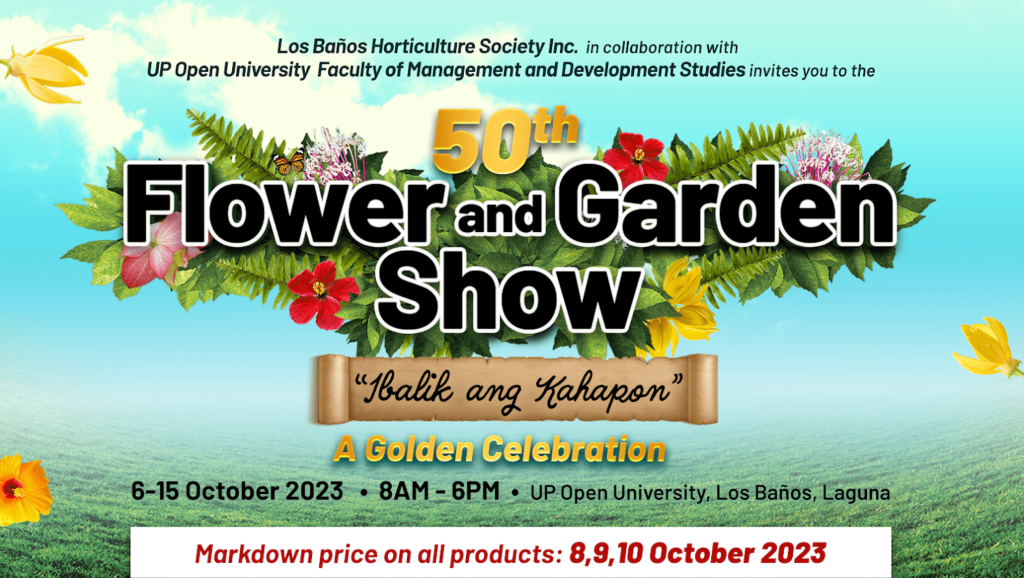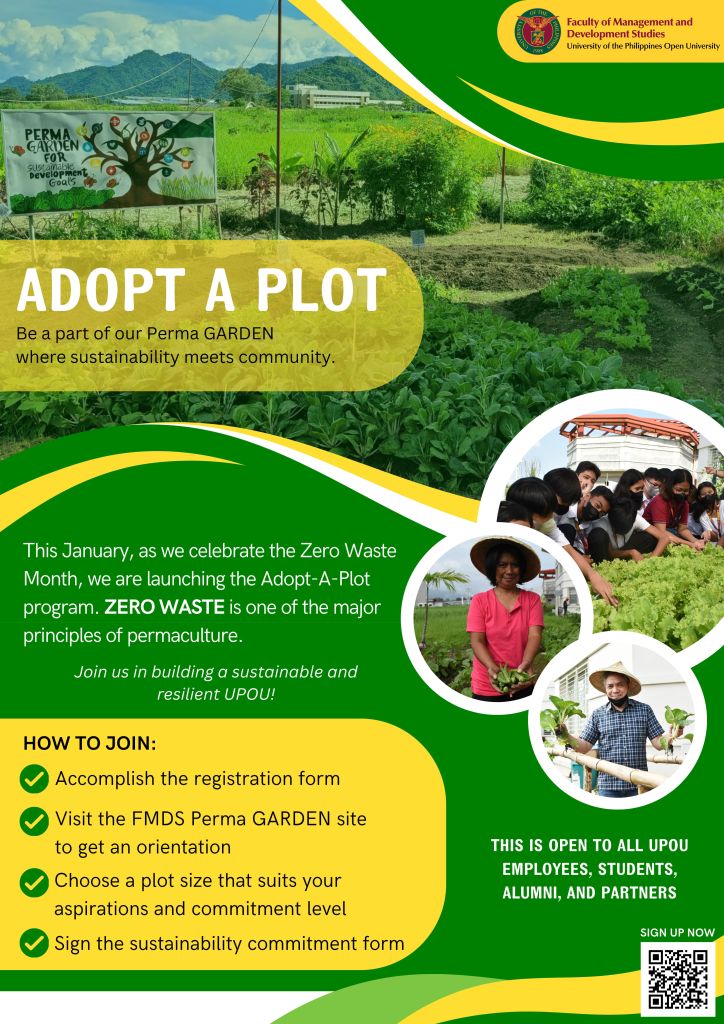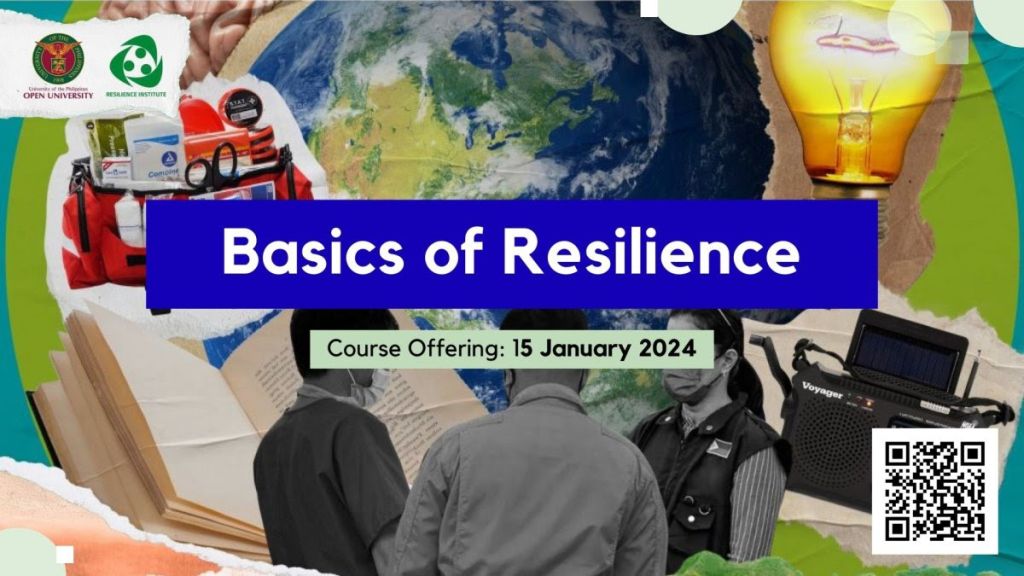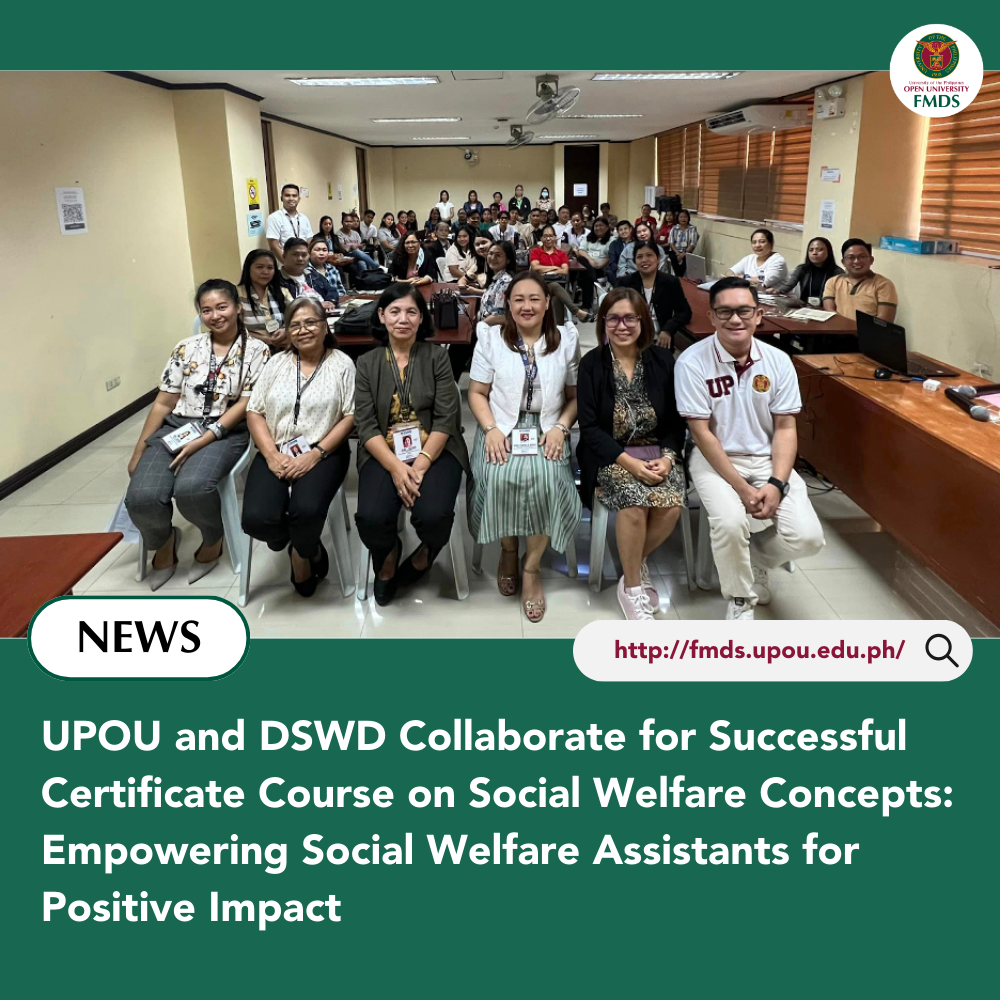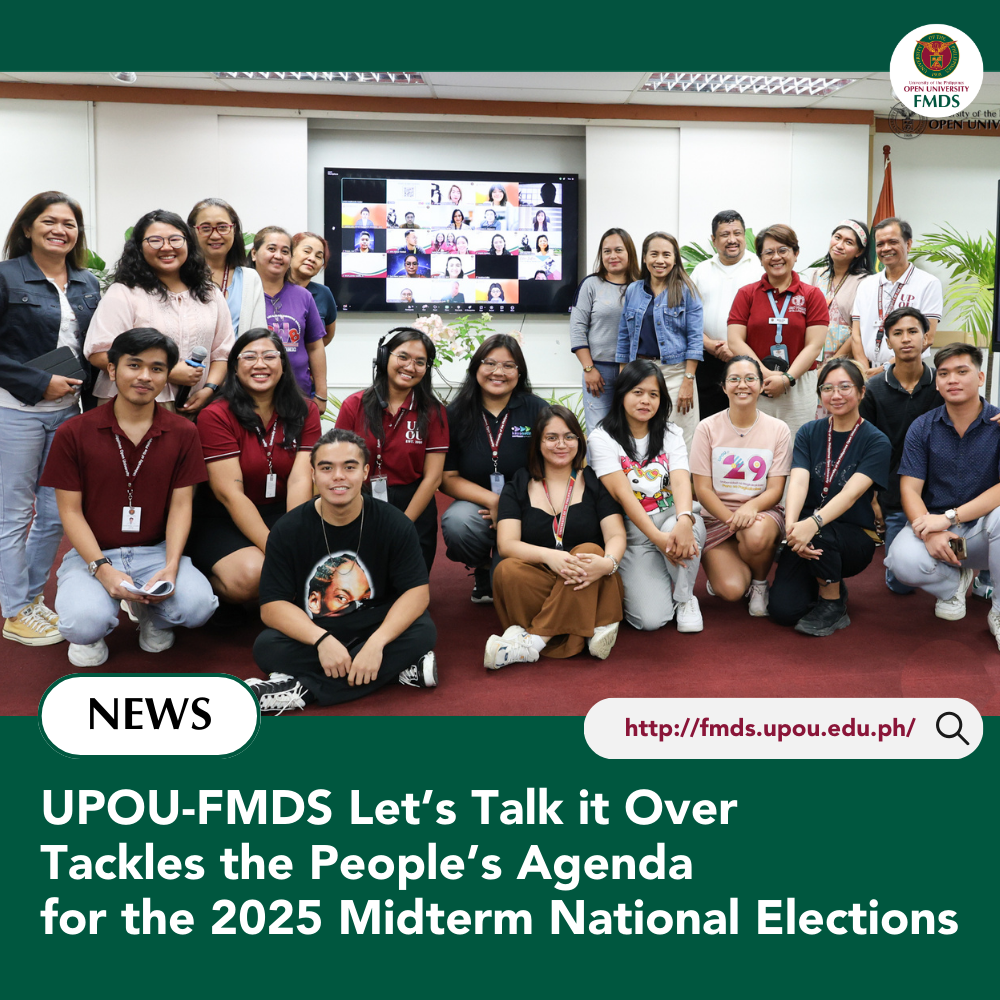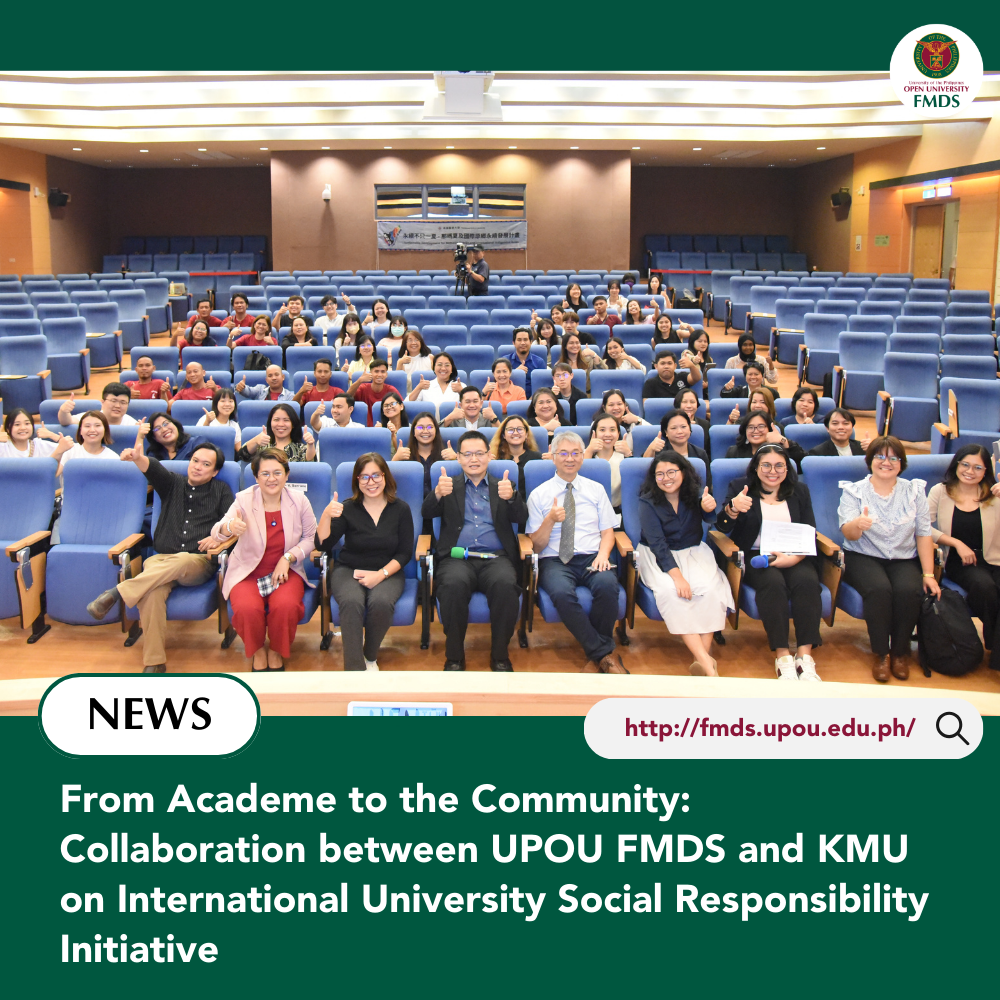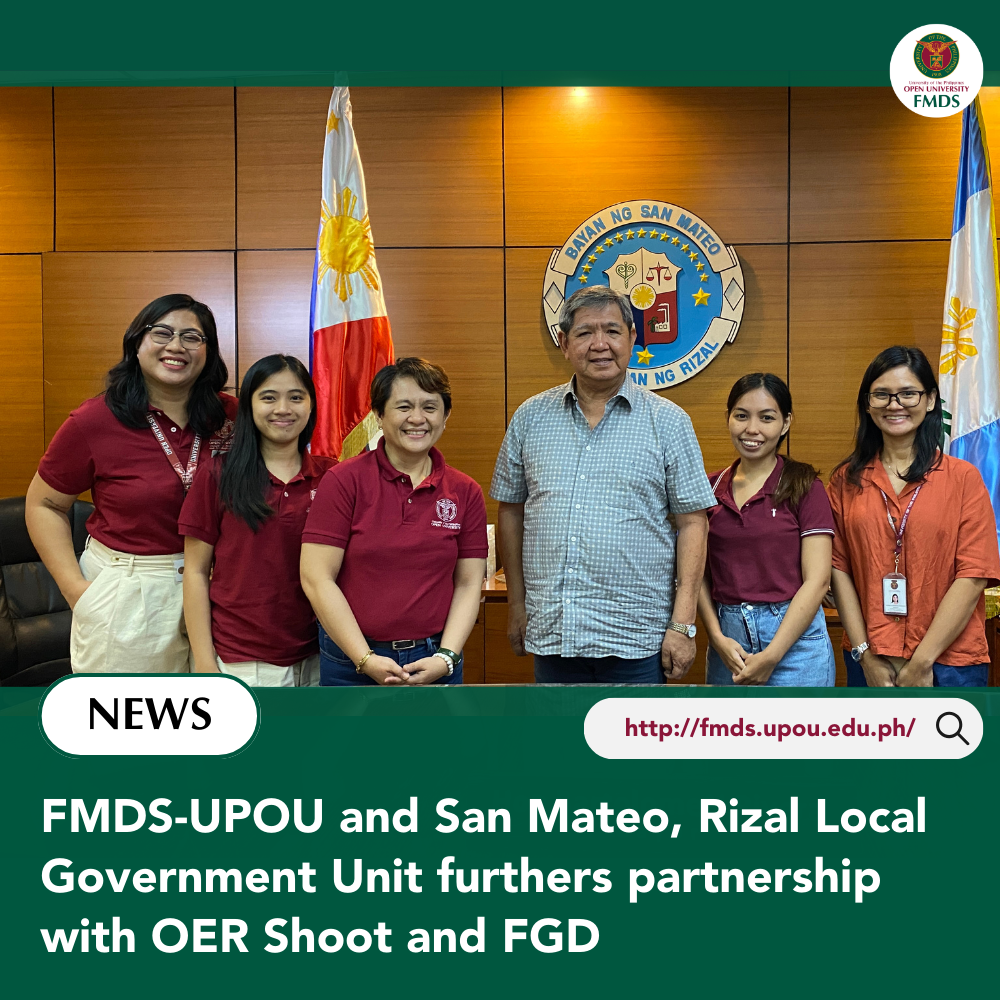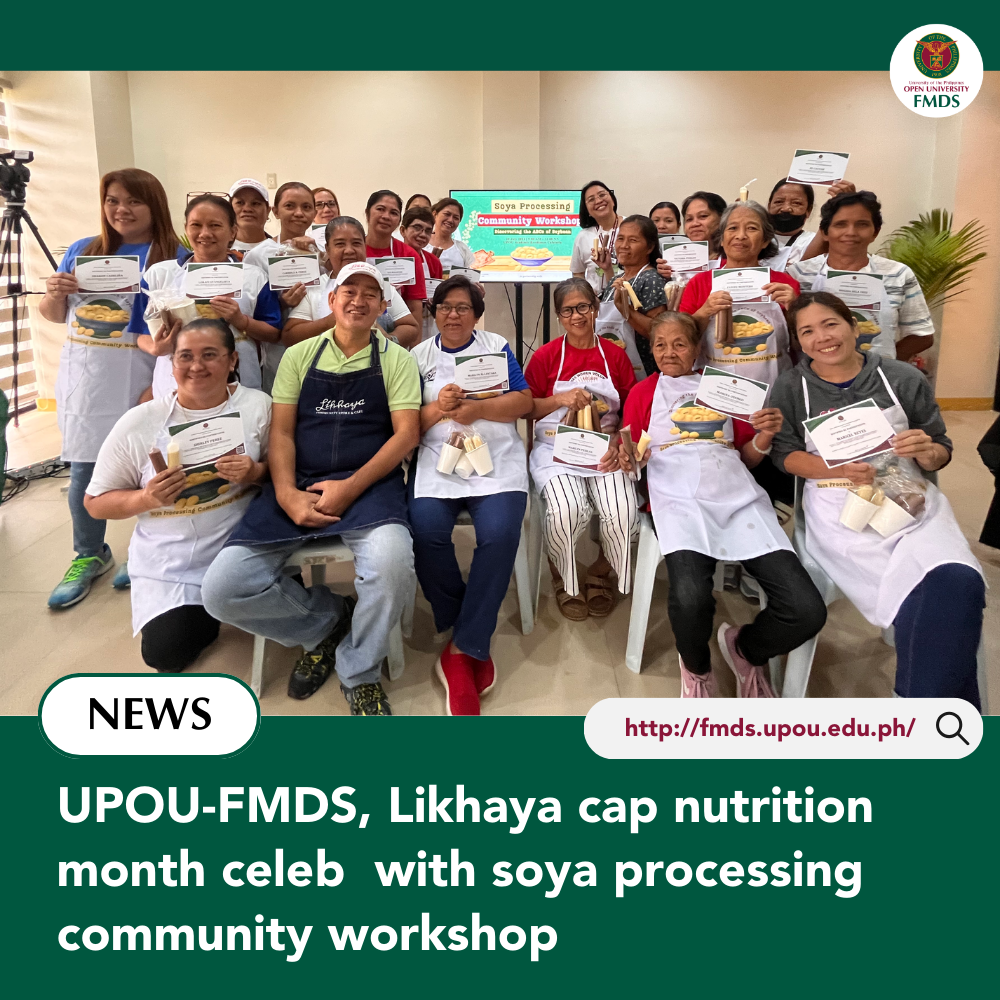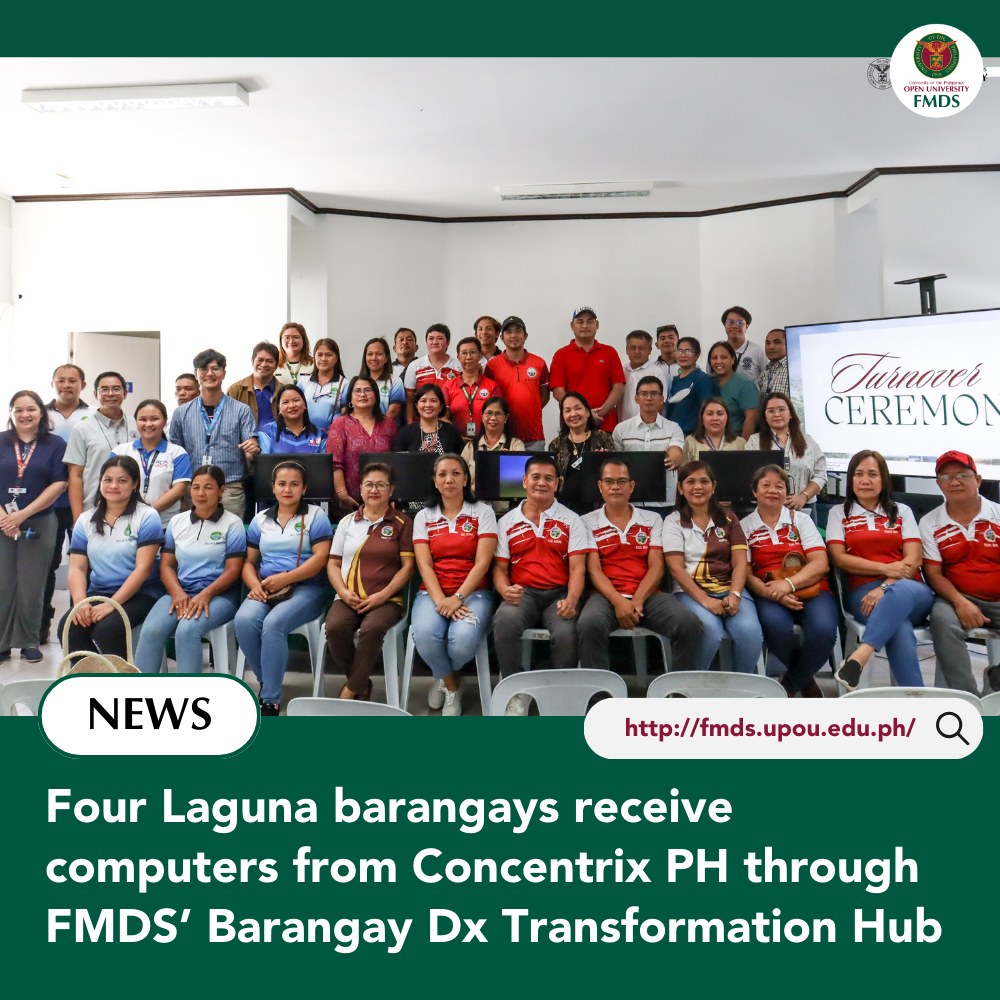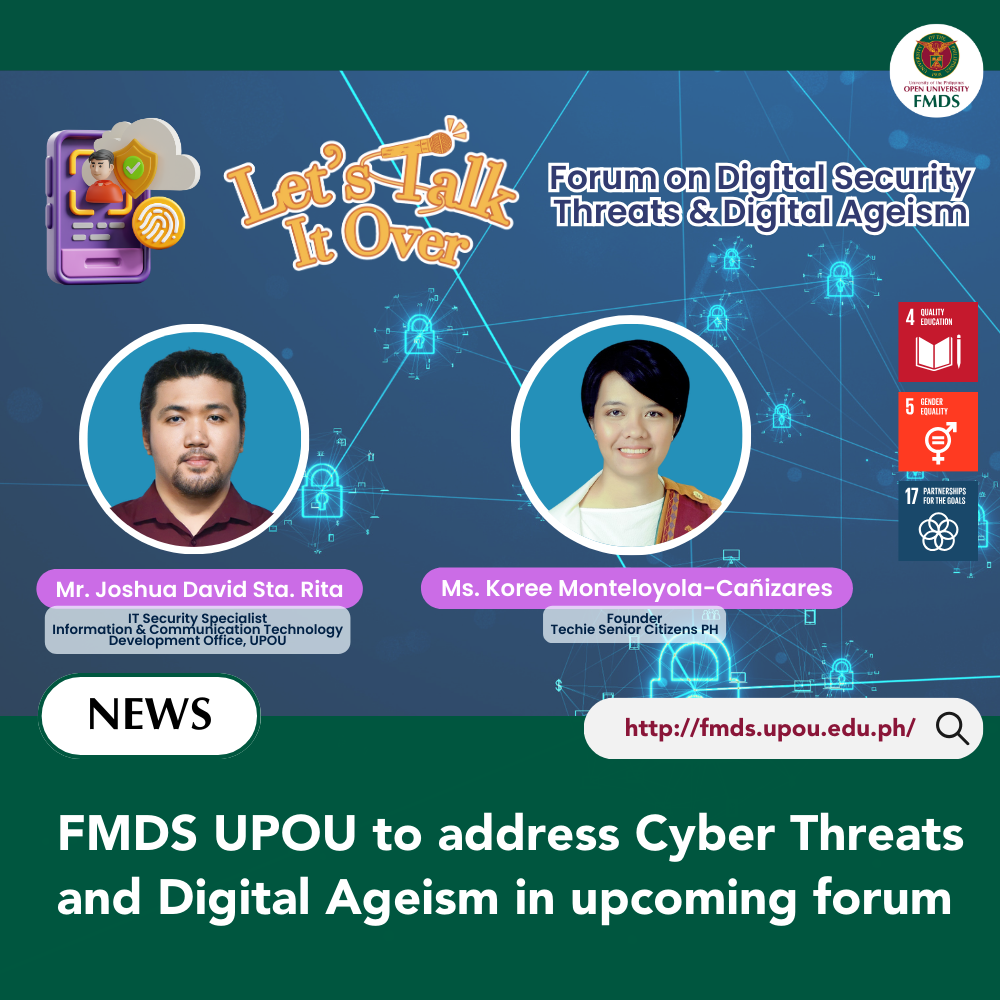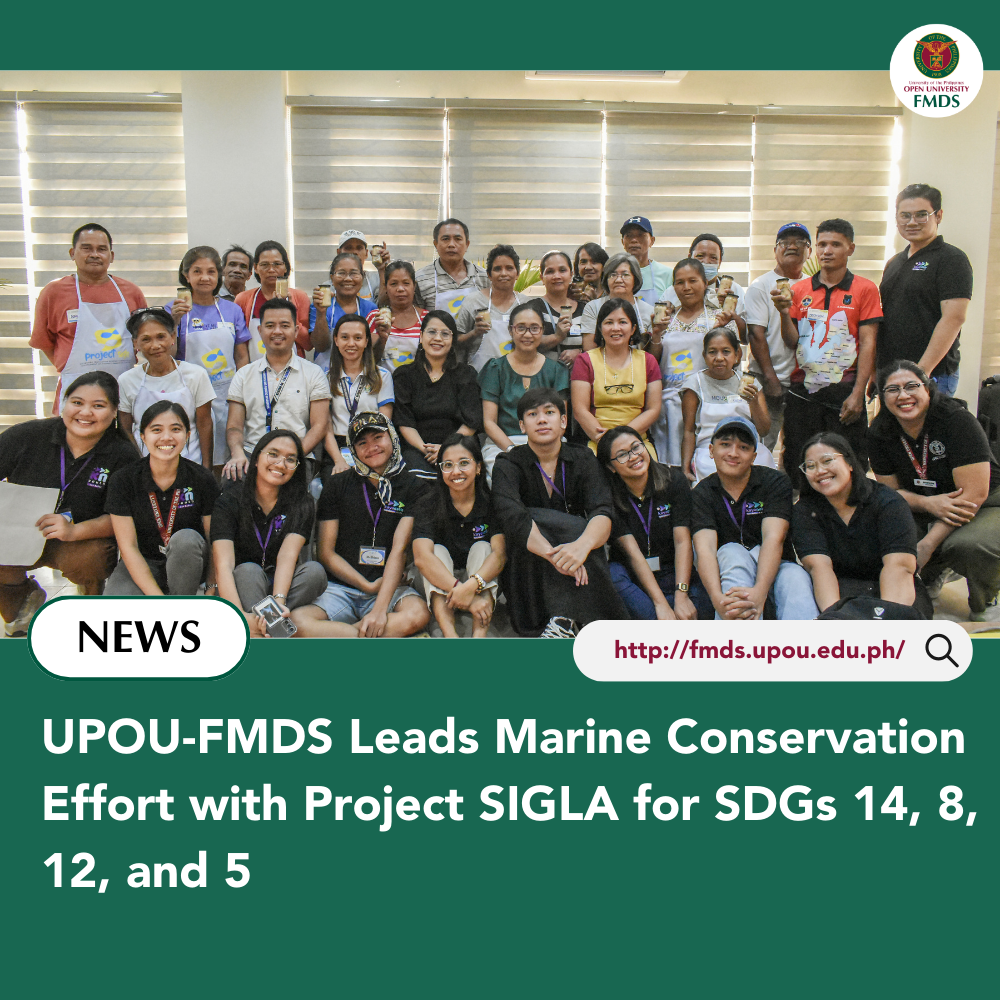FMDS Framework
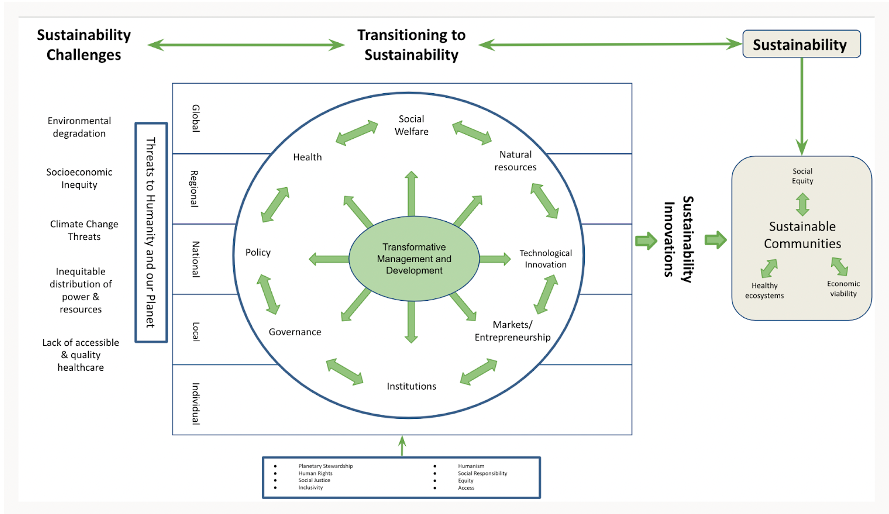

Intersection of FMDS Instruction, Research and Public Service
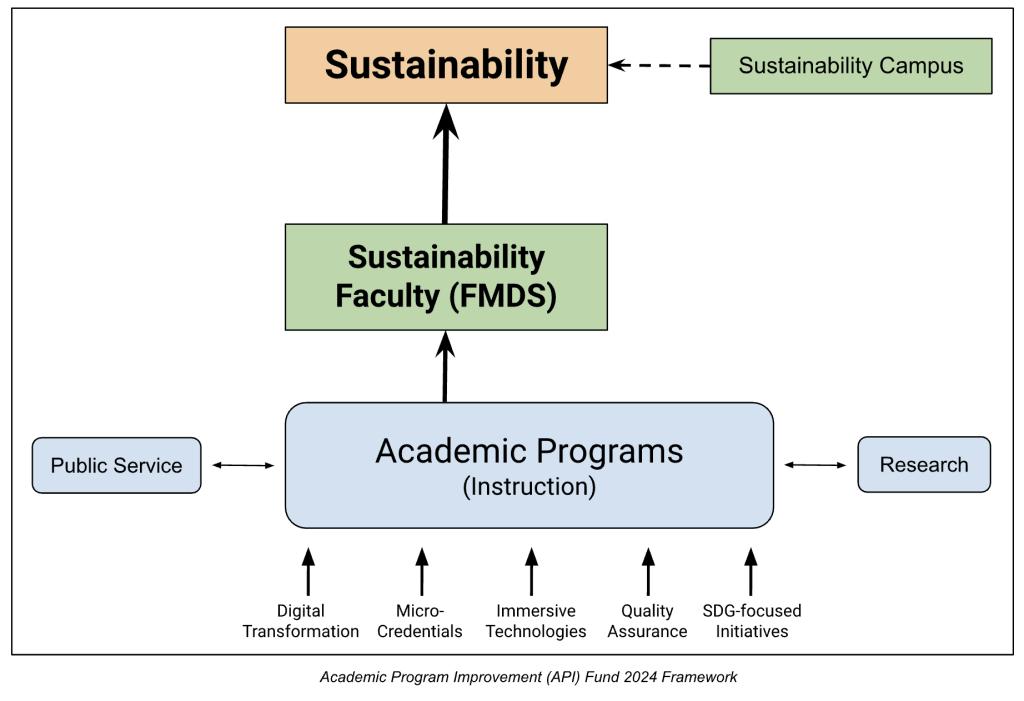

Public Service and Research Thrusts of FMDS will be referred to as
Community Inclusivity, Digital Transformation, And Acceleration Towards Sustainability (CIDAS)
(Inklusibo, Makatao, at Digital na Transpormasyon tungo sa Likas-kayang Pag-unlad ng Pamayanan)
Digital transformation can contribute to sustainability in various ways, leveraging technology to address environmental, social, and economic challenges. By focusing on Barangay or Municipality, FMDS can help contribute to enhanced community governance and improved community service (i.e. education and skills development, effective disaster management and community empowerment). Through community digital transformation, community engagement initiatives can deepen UP’s connections with external stakeholders especially at the community level, fostering mutually beneficial relationships and partnerships to advance digital transformation goals of the university.
a. Leadership Innovation through People-centered and Accountable Governance and Digital Transformation (LIPAD Barangay)
A Certificate program towards Brgy. Transformation, Enhancement of Brgy. Digital Hub, Capacity-building for the Barangays.
This initiative aims to empower and equip Barangay leaders with the knowledge, skills, and tools necessary to promote participatory governance, community-based disaster risk management, and gender-responsive planning and management.
b. Barangay Digital Transformation Hub
In partnership with Public Employment Service Office (PESO) Laguna, Concentrix Philippines, and select barangays in Laguna, this project seeks to organize digitally-transformed model communities by establishing hubs where barangay leaders and residents are provided with access to different capacity-building programs of UP Open University (i.e. Massive Open Online Courses and certificate programs) and PESO’s Province of Laguna Employment and Information System (PLEIS), an online job-matching platform designed to efficiently connect job seekers and employers.
In line with the establishment of a Digital Transformation Hub, listed below are the list of workshops and services to be conducted in line with Youth and Children Empowerment (YACE):
Workshop for Barangay Officials
The barangay digital transformation hub serves the purpose of harnessing the potential of technology to revolutionize and streamline the processes of the barangay. Through these series of workshops, barangays are equipped with the knowledge and skills on how they could maximize the resources of the digital transformation hub for the improvement of their internal processes and the greater benefit of their community. The specific titles for the workshops are as follows:
- Use of Google and Office Applications
- Basic Tech Troubleshooting (Computer and WiFi Servicing)
- Province of Laguna Employment and Information System (PLEIS) Capacity Building
- Database Creation and Data Handling
Workshops for Job Seekers
Job seekers from the community need to be capacitated with various technical writing skills so that they may improve their chances of securing decent employment. The purpose of this series of workshops is to educate the community on the basics of developing a strong employment application. The program also aims to provide job seekers with the skills desired by the industries so that they may become more competitive in the job market. The specific titles for the workshops are as follows:
- Job Search: Building a Strong Job Application
- Application Letter
- Resume/Curriculum Vitae
- Portfolio
- Job Search: Becoming a Competitive Worker
- Desirable Work Ethics and Gender Sensitivity
- In-Demand Industry Soft Skills
- Green Jobs and DRRM Training
Workshops for Improving Online Presence and Communication
With the ever-growing relevance of the digital space, all members of the community need to be literate in participating in various online processes. Through this series of workshops, the community will be guided on basic online communication and decorum to build productive online citizens. Additionally, advanced workshops on social media management will be conducted to assist individuals, organizations, and businesses in effectively promoting their products, services, and activities online. The specific titles for the workshops are as follows:
- The Basics of Online Communication
- Email Communication
- Social Media Etiquette
- Internet Ethics
- The Basics Social Media Management
- Content Creation (Publications and Captioning)
- Graphic Design
- Social Media Protocols
Workshops for Improving Access to Education
It is important to build the capacity of communities to become effective lifelong learners. By providing the community with the basic skills and understanding of how to learn independently by maximizing online sources, this workshop is one of the ways to bridge the gap to quality education. Through these workshops, community members will be introduced to strategies and methods of becoming an effective online learner and the available platforms for pursuing self-directed learning. The specific titles for the workshops are as follows:
- Introduction: Unlocking the Potentials of Distance Education
- Methods and Strategies for Becoming an Effective Self-Directed Learner
- The Different e-Learning Platforms
- MOOCS
- E-TESDA
- Coursera
- HarvardX
- Harnessing Technology: Ethical Use of ChatGPT in Education
Workshops for CyberSecurity
The world has experienced unprecedented levels of technological advancements resulting in the ever-growing complexity of the digital space. Although digitalization has brought with it several conveniences such as improved connectivity, it has also been accompanied by the proliferation of new-era cybersecurity threats. The workshops intend to better address the growing needs for digital, technological, media, and information literacy skills. The specific titles for the workshops are as follows:
- How To Recognize, Prevent, and Address Digital Security Threats
- Understanding Digital Ageism and the Importance of the Role of the Youth
Barangay Digital Transformation Hub Services
With the provision of the Barangay Digital Transformation Hub, the barangay, through its Sangguniang Kabataan (SK) can now spearhead digital hub services to its constituents. This program aims to assist the SK in institutionalizing the digital hub services so that the community may maximize the donated computer units. Among the services of the Barangay Digital Transformation Hub can include:
- Computer and Connectivity Access
- Province of Laguna Employment and Information System (PLEIS) Access
- Printing Services
- Online Learning Hub
Together, Project Lakbay, Earth Ambassador, and Project LIKHA activities stand as cornerstones of our dedication to empowering youth and children. These initiatives nurture personal growth, instill a sense of purpose, and equip young individuals with the tools to become positive agents of change in society. By investing in their development and fostering a spirit of responsibility, we strive to create a generation that embraces both individual growth and collective well-being, for a better and more sustainable future.
A project launched in 2013 by the UPOU through the FMDS that aims to train a core group of selected elementary students to promote awareness about sustainable development, biodiversity conservation and management of natural ecosystems and traditional socio-ecological landscapes. The UPOU Earth Ambassadors are composed of youth, usually students from the partner schools who will help raise awareness and conduct activities in their local schools and communities in line with sustainable development, environmental and natural resource management. The present EA partner schools as of its relaunch on 8 June 2023 are: Sto. Domingo (Bay), Dayap Elementary School (Calauan), The Learning Place International (Los Baños), and Paciano Rizal Elementary School (Los Baños).
This Youth Cultural and Learning Immersion Camp represents an exciting opportunity for young people to engage in a holistic learning experience. This immersive camp likely includes a range of activities such as learning visits, action, hands-on, and social learning, educational workshops, and various development activities.
Project LIKHA
Project LIKHA (Leveraging Ideas of Kinship in Harmony with the Arts) was conceptualized by Kaya Natin! Youth – Los Baños in pursuit of searching the intersectionality between the arts and sciences through an arts-based intervention that will help mitigate the day-to-day struggle and challenges encountered by the youth, especially on mental health problems. Apart from these serious mental health problems faced by the youth, there are also other problems that pose long-term negative impacts in the welfare of the young population including poverty, teenage pregnancy, disinformation, unemployment, change in family dynamics and even climate change.
Because mentally-challenged youth in the community lack support and resources, this project will give access to those in need of mental health services and provide creative tools on how to deal with stress, peer pressure, and uncertainties among others.
The pilot implementation of Project LIKHA covers a total of 70 participants composed of 28 participants from Los Baños’ Sangguniang Kabataan Officials, 4 youth trolley residents/drivers, 10 elementary teachers, and 28 elementary student participants from UPOU-FMDS’ Earth Ambassadors partner schools.
- Senior citizens to keep their dignity and enthusiasm to participate in community activities; the role of senior citizens in society; UPOU as an age-friendly university
- Barangay training capacity
- Boost Elderly Citizens’ dignity, and integrity through an age-friendly university
- Women in Tech Start-up
University of the Philippines Open University (UPOU) is a member of the Age-Friendly University (AFU) Global Network, an international association of higher education institutions that have endorsed the 10 AFU principles and are committed to becoming more age-friendly in their programs and policies.
CHEW is a public service effort that focuses on enhancing the health and wellness of villages and communities in the ASEAN region and globally. Unlike many health programs that tend to concentrate on larger hospitals and urban areas, CHEW recognizes the importance of reaching out to underserved and rural communities at the grassroots level. This community-centered approach ensures that healthcare services and education are brought closer to the people who need them most.
MOOC (Massive Open Online Course) on Well Being and Mental Health Course
This course is designed to equip a diverse range of individuals with the knowledge and skills needed to provide meaningful support to individuals facing mental health challenges. Whether you are a caring friend or family member, an educator, counselor, healthcare professional, or a potential helpline volunteer, this program will enhance your ability to empathize, communicate effectively, and positively impact the lives of those in need. This course is also suitable for organizations and the public sector committed to promoting mental health awareness and support within their communities.
- FMDS Perma G.A.R.D.E.N
- Environment and natural resources management program
- Bard College’ Make Climate a Class and Make Climate an Event
- Worldwide Climate Education Week
Planning and organizing events that provide a focus of public attention to topics related to climate awareness and climate justice.
a. Through Land Management
- Enhanced Generation of Local Government Revenues through Improved Real Property Valuation and Adoption of the Land Value Tax
b. Through Shared Growth
- Community Currency
c. Through Employment
- FMDS Partnership with PESO Laguna and Concentrix
d. Through Sustainable Tourism
SLIDE serves as a prime target for UPOU’s Associate of Arts in Digital Entrepreneurship program (AADE). It aims to provide a platform for small and local businesses to operate and adapt in a digitally networked and rapidly changing business environment, Demonstrate creativity, innovation, and ethical values when transitioning business concepts, assets, products, services, and essential elements digitally, while also embodying an entrepreneurial mindset that incorporates ethical conduct, cultural awareness, environmental considerations, and social responsibility within the digitally proficient enterprise in line with the program’s goal.
The goal of this initiative is to Identify ways and facilitate programs on how communities can apply research results of technology to improve their way of living and encourage community members to participate in using research in the development of their communities. A forward-thinking and community-focused effort that seeks to bridge the gap between academic research and the practical needs of local communities through workshops, training, and upskilling of community members.

